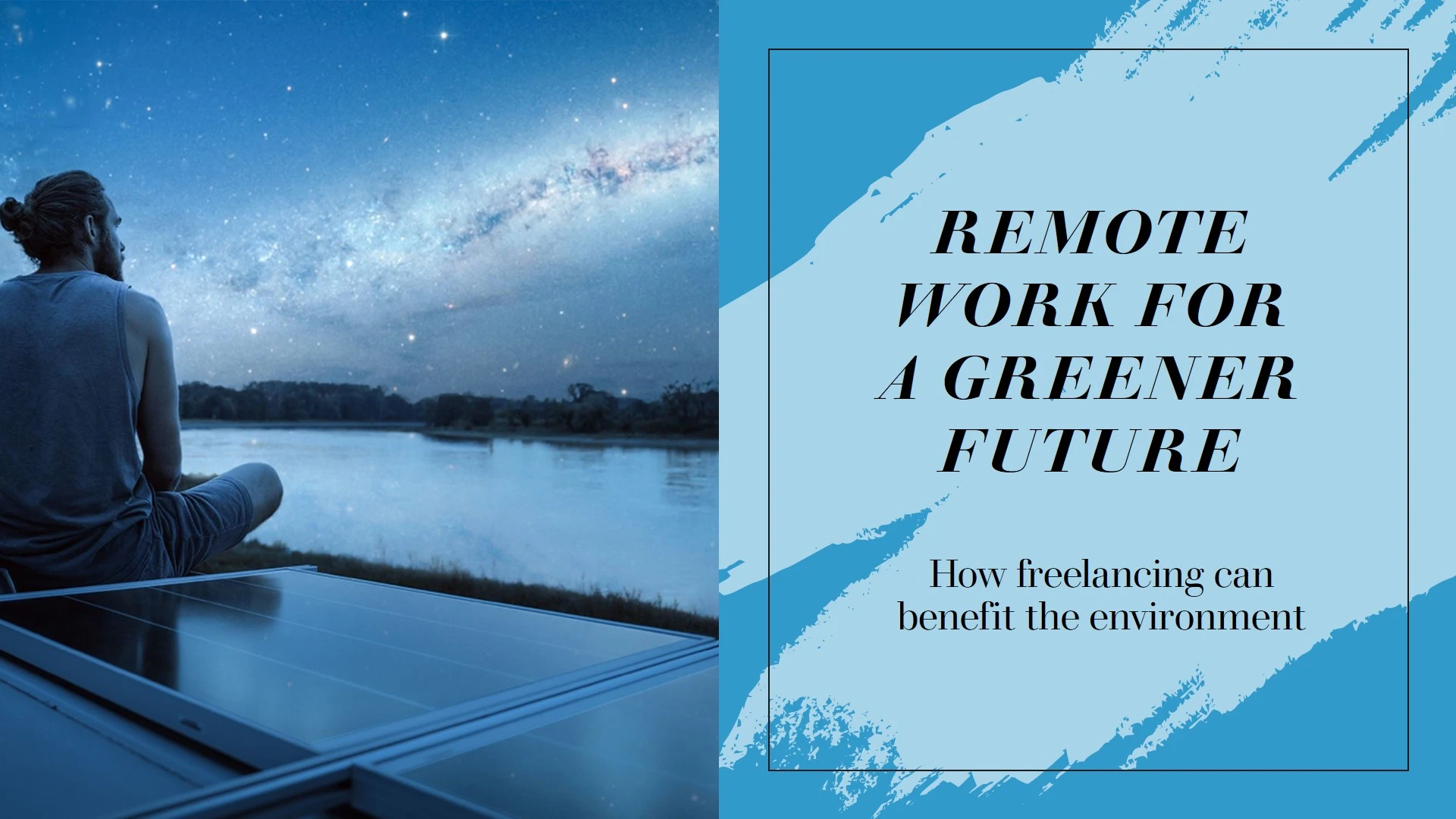As the world grapples with the urgent need for environmental sustainability, freelancing emerges as an unexpected champion for a greener planet. The nature of remote work, a cornerstone of the freelance lifestyle, is inherently more eco-friendly than traditional office-based employment. By reducing commutes, minimizing energy consumption, and reducing paper waste, freelancers contribute to a smaller environmental footprint. But how exactly does this work, and what can freelancers do to minimize their impact further?
The Commute-Free Zone: Shrinking Your Carbon Footprint
One of the most significant ways remote work benefits the environment is by reducing commuting emissions. Think of the daily traffic jams and the endless lines of cars spewing exhaust fumes—a major contributor to air pollution and carbon emissions. By working from home or in a local co-working space, freelancers eliminate their daily commutes, substantially decreasing greenhouse gas emissions. A study by Global Workplace Analytics found that remote workers in the U.S. reduce greenhouse gas emissions by an estimated 54 million tons annually.
But it's not just about individual emissions. Remote work also reduces traffic congestion, which further decreases overall pollution levels. With fewer cars on the road, we create a ripple effect of positive environmental impact.
Energy Efficiency: Less Office Space, Less Energy Use
Another environmental advantage of remote work is its energy efficiency. Traditional office buildings consume vast energy for heating, cooling, lighting, and powering office equipment. With more people working remotely, the demand for office space decreases, leading to lower energy consumption and a smaller carbon footprint for businesses.
Freelancers can contribute to energy conservation by adopting energy-efficient practices in their home offices. This could include using LED lighting, powering down electronics when not in use, and opting for energy-efficient appliances.
The Paperless Revolution: Digital Tools for a Greener Workflow
In the digital age, paper is becoming increasingly obsolete. Freelancers, often early adopters of technology, are leading the charge toward a paperless workflow. We can significantly reduce paper waste and the environmental impact associated with paper production and disposal by utilizing digital tools for communication, collaboration, and project management.
Your Green Toolkit: Eco-Friendly Tips for Freelancers
While remote work inherently has environmental benefits, there are additional steps freelancers can take to minimize their impact further:
Energy-Efficient Equipment: Invest in energy-efficient laptops, monitors, and other devices. Look for products with ENERGY STAR certification, which indicates they meet strict energy efficiency guidelines.
Sustainable Transportation: Whenever possible, choose eco-friendly transportation options like walking, cycling, or public transport. If you need to drive, consider carpooling or using a hybrid or electric vehicle.
Waste Reduction: Reduce, reuse, and recycle. Minimize waste using reusable containers, avoiding single-use plastics, and printing only when necessary. Compost organic waste and properly recycle electronics and other materials.
Freelancers: Environmental Champions
As freelancers, we have the power to make a real difference in the fight against climate change. By embracing sustainable practices in our work and daily lives, we can reduce our environmental impact and inspire others to do the same. Let's leverage the flexibility and autonomy of freelancing to create a greener, more sustainable future.











No comments:
Post a Comment